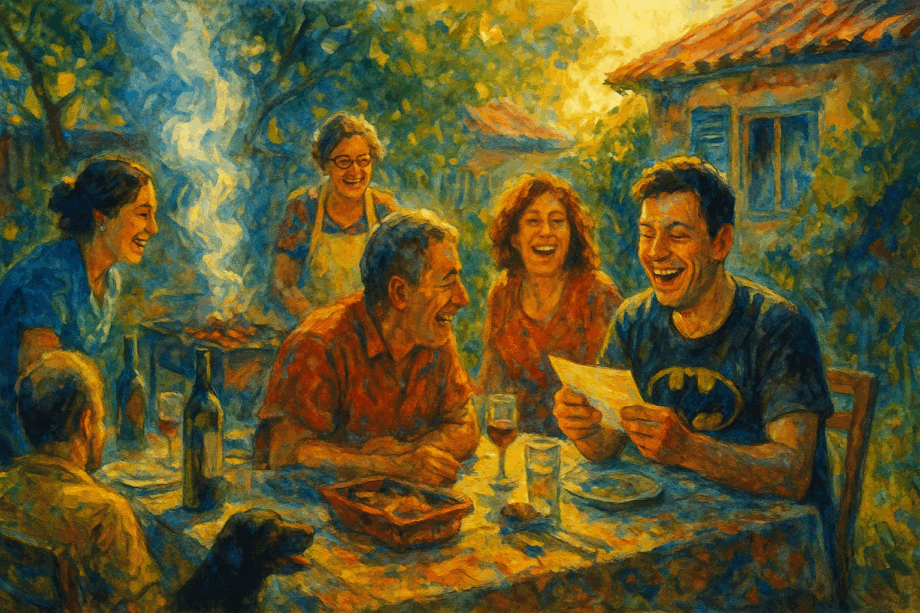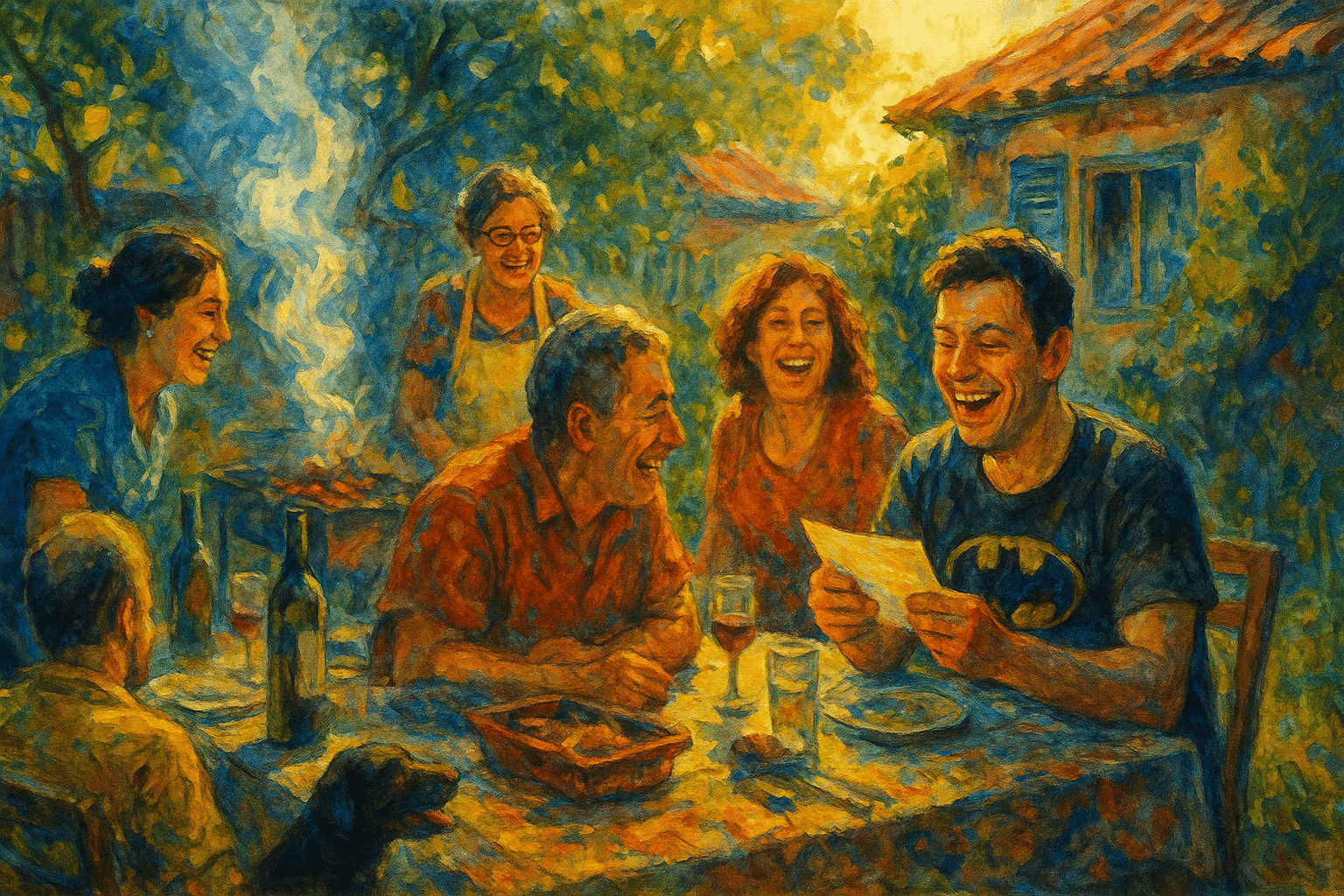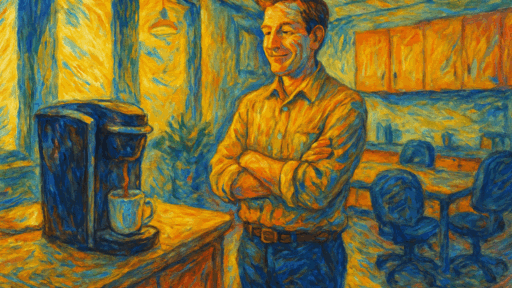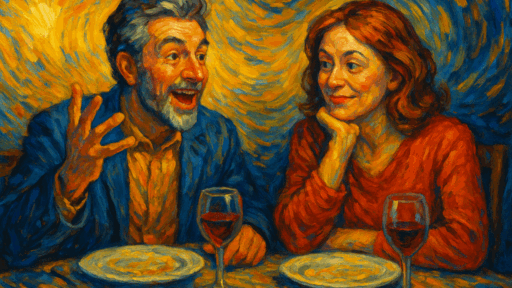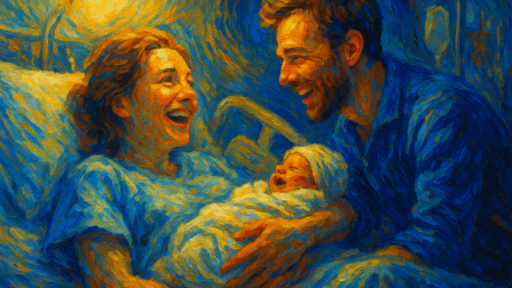“Laughter is the closest distance between two people.”
Victor Borge
There are some days that arrive with a kind of warning in the air.
You can feel it before the coffee, before the sun’s even made up its mind—that sense that something is coming. Not necessarily bad. Just heavy. Like the moment before a storm when everything goes still.
That’s how the day felt. The kind where you know you’ll laugh, maybe even too hard, but you’ll also feel that quiet weight behind it. The kind of day where laughter has a job to do.
When I got to my aunt and uncle’s house, it was clear we all understood the assignment. Officially, we were there to welcome me, to have a little asado and catch up. But really, we were there for Pablo. For his wife. For each other. Trying to make the world feel normal for an afternoon—or at least close enough to fake it.
Their backyard looked the same as always—a little wild around the edges, flowers growing in strange places, the bricks uneven from years of being stepped on by the same feet. The smell of meat on the grill drifted through the air, mixing with conversation and the occasional shout from my aunt, who was half singing, half scolding the dogs.
And there was Pablo—in his Batman shirt, with Spider-Man on one arm and the Flash on the other. His hair still patchy from the treatments, his grin still mischievous. He looked at all of us like he knew what we were doing and decided to let us get away with it.
The dogs, bless them, must’ve sensed the tension because they made it their mission to break it—darting in circles, barking at ghosts, trying to steal whatever hit the ground. My aunt kept pretending to be furious while sneaking them scraps. The rest of us just laughed because that’s what you do when words won’t help.
I tried to keep up with the Spanish—half catching conversations, half guessing. Someone would tell a story, and I’d laugh a beat late, and Pablo would catch my eye, that same knowing smile. He’d been through hell, but there was still light in there.
The food kept coming—pebre, charred steak, a mess of bread and wine. Someone spilled something. Someone else toasted nothing in particular. And for a few hours, everything held. The sun stayed too long, the breeze stayed soft, and we all pretended it would last.
Every now and then, Pablo would fade for a bit, eyes far away. And when he did, Javier was right there—a hand on his shoulder, a quiet check-in. No big gestures. Just presence. The kind of brotherly love that doesn’t need words.
And somehow, laughter kept showing up. Sometimes loud, sometimes soft, but always there — a small rebellion against everything waiting outside the fence. We laughed through the language gaps, through the awkward silences, through the weight none of us wanted to name.
Then, out of nowhere, Pablo laughed. Really laughed. It wasn’t big or strong, but it was real—that kind of laugh that cuts through the noise and makes everyone stop. And in that second, everything else fell away. It was like the world was exhaling.
I looked around—the dogs chasing each other through the dust, my aunt refilling glasses, my uncle pretending not to cry as he poked at the fire. And I thought: this is it. This is what we get. A sunny backyard, a messy table, the people we love doing their best to make it all feel okay.
When it was time to leave, I hugged Pablo, felt the bones under his shirt, and caught that tired smile again. There was sadness there, sure. But also something stronger—love, unmistakable and steady, the kind that fills a room without saying a word. He was still himself. Still here.
As I drove away, I could still hear his laugh in my head—soft, short, defiant.
It didn’t fix anything. But it carried something through the air with me—
the sound of us, together, refusing to give in.
And maybe that’s what laughter really is.
Not a cure. Not an answer.
Just a way of saying we’re still here.


